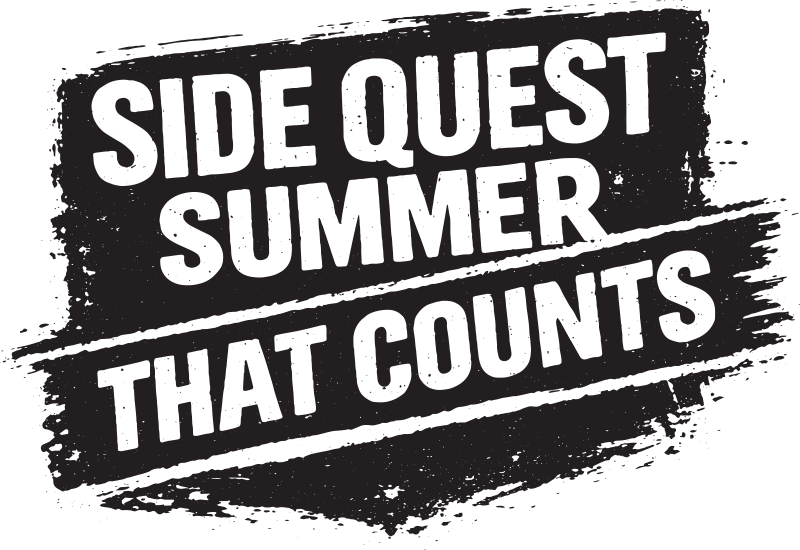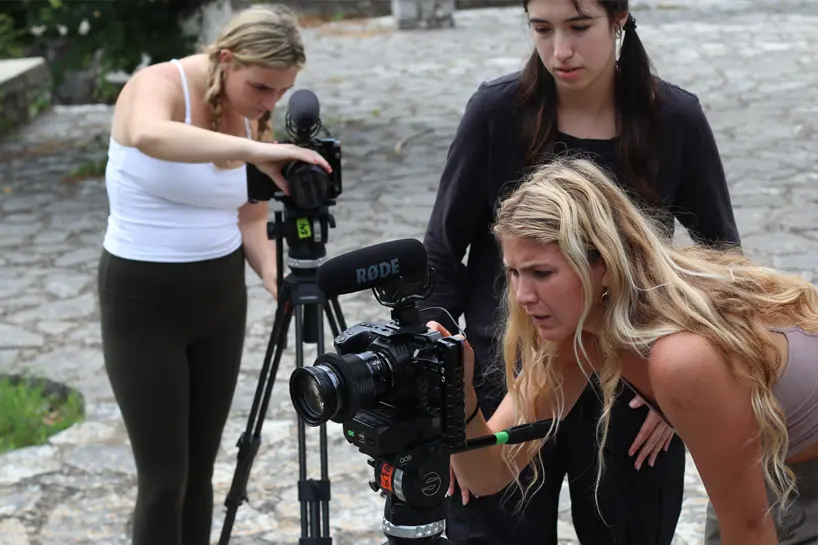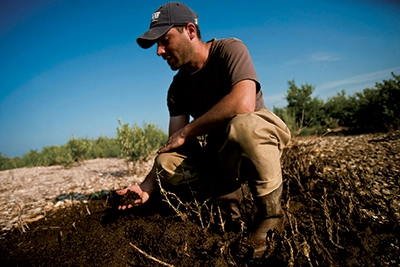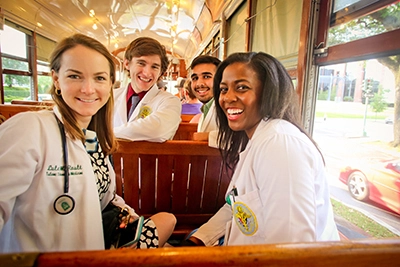Side Quest Summer: That Counts is about real progress — toward your major, a minor, or service-learning hours. These are not extra classes. They count.
These courses will help you:
• Start or finish a minor
• Earn service-learning credit
• Lighten your fall or spring load
Complete credits, advance minors, and open flexibility for the year ahead with in-person, hybrid, and completely online options.
Questions?
Reach out to Operations Manager Alicia Dugas (adugas@tulane.edu).

- Current Students: Register Now!
- Visiting Students: Submit Your Application Now!
- Summer Enrollment FAQs for current & visiting students
- Questions? Email Alicia Dugas (adugas@tulane.edu)
Tulane Liberal Arts — Summer 2026 Course Offerings

SUMMER OF SLAM
Build the business and entrepreneurial skills behind the arts and humanities — while engaging directly with today’s media, fashion, nonprofit, and sports industries.
SUMMER OF SLAM Courses
- SLAM 2020: Financial Analysis and Budgets
Instructor: Lyndrison Lincoln | 3 credit hours | Early Summer, May 26–June 26 | M–F, 11:00 am–12:30 pm, online
Discover the essentials of financial analysis and budgeting — no business background required! Learn how budgets drive organizational success through financial assessment, strategic planning, and market-focused decision-making. Gain insights into core operations and the roles that make organizations thrive.
* Counts toward the Liberal Arts Management Minor in place of ACCN-2010. No prerequisites. - SLAM 2030: Introduction to Data Analytics
Instructor: Knud Berthelsen | 3 credit hours | Maymester, May 11-22 | M–F, 10:00 am–3:00 pm, online
Master the art of data-driven decisions! This hands-on course takes you from raw data to actionable insights. Learn to collect, clean, and analyze diverse datasets using modern tools, spot misinterpretations, and craft compelling narratives that drive more innovative strategies. - SLAM 3030: Marketing Strategies
Instructor: Erica Larsen | 3 credit hours | Late Summer, June 29-August 01 | M–F, 11:00 am–12:30 pm, online
Unlock the power of marketing! From branding and storytelling to research and creativity, this course explores how effective strategies connect organizations with their audiences and create lasting value. Through hands-on projects with New Orleans-based organizations, you’ll learn to craft impactful campaigns that inspire and engage. - SLAM 3070: Non-Profit Development
Instructor: Leslie Scott | 3 credit hours | Special Term May 27-June 20 | M–F, 9:00–11:00 am, online
Lead with purpose in the nonprofit arts world! Explore the unique challenges and opportunities of performing arts organizations — from leadership and governance to marketing, fundraising, and financial management. Through guest lectures, case studies, and hands-on projects, you’ll gain practical tools, develop a management philosophy, and learn how to advocate for the arts in today’s evolving cultural landscape.
* Optional 40 HR SRVC Learning, SLAM 3890 - SLAM 3100: Digital Entrepreneurship
Instructor: Ron Gard | 3 credit hours | Special Term June 29–July 17 | M–F, 1:00–4:00 pm, online
This course surveys developments in entrepreneurship and new media/communication/digital technologies, explores and examines the cultural transformations that result, and allows students to initiate their own original entrepreneurial activity in a hands-on way, utilizing emergent technological resources. - SLAM 3913: Business of Media Production
Instructor: Casey Beck | 3 credit hours | Maymester, May 11–22 | M–F, 10:00 am–3:00 pm, online
Make Your Creative Career Market-Ready! Step behind the scenes of the media industry and master the business essentials every creator needs. In this Summer of SLAM workshop, you’ll learn how to build a brand, craft a business plan, and handle legal and financial basics for freelance success. Finish strong with your own professional website — your launchpad into film, design, podcasting, and digital arts. - SLAM 4820-01 or -02: Business of Sports
Instructor: Peter Kunze | 3 or 4 credit hours | Special Term: May 26–June 12 | M–F, 1:00–4:00 pm, online
This course provides a critical overview of the business of sports. We will draw upon research in business, communication, economics, geography, legal studies, media industry studies, and sociology. We will talk about labor, management, and marketing as well as the structure of the sports industries and their convergence with the media industries, in particular. Special attention will be paid to how the sports industry intersects in varying contexts, including locally, nationally, and globally. Finally, special attention will be paid to how race, gender, sexuality, and ability shape the business of sports, media, and culture.

Environmental Studies
Dig deep (literally) into vital issues of environmental and social justice and community preservation. These courses can advance an EVST minor and help you knock out requirements early.
Environmental Studies Summer Courses
- EVST 3950-01: Race, Nature & Disaster
Instructor: Clare Daniel | 3 credit hours | Early Summer, May 26–June 26 | M–F, 10:30 am–12:00 pm, online
How do race, politics, and environmental crises collide to shape vulnerability? This interdisciplinary course explores the human-made dimensions of epidemics — from cholera in Haiti to COVID-19 — revealing how social policy and global systems create disproportionate risk for marginalized communities. Perfect for students interested in environmental justice, public health, and medical ethics, you’ll examine the nature/humanity divide and its impact on science, policy, and disaster response.
* Optional 20 HR. SRVC LEARNING, EVST 3890-01 - EVST 3953-01 & -02: Environmental Crisis in World Cinema
Instructor: Antonio Gómez | 3 or 4 credit hours | Late Summer, June 29–July 31 | M–F, 1:00–2:30 pm, online
Explore how global films tackle climate change, ecological disaster, and environmental rights. From documentaries to fiction, this course examines whether cinema sparks activism — or contributes to the crisis through its own production practices. Perfect for students passionate about environmental justice, media, and cultural impact. - EVST 4210: Environmental & Social Justice in NOLA
Instructor: Christopher Oliver | 3 credit hours | Late Summer, June 29–July 31 | M–F, 3:00–4:30 pm, Hybrid Course
Explore how policies and socioeconomic factors drive unequal ecological impacts in the U.S. This hybrid course combines classroom learning, guest speakers, and hands-on fieldwork with local organizations to tackle real-world environmental justice issues in Greater New Orleans. Gain practical research skills and critical frameworks to analyze and address environmental inequities.
* Optional 20 or 40 HR. SRVC LEARNING, EVST 4890-01 or -02.
U.S. Public Policy
Build real skills in public policy analysis and put research into practice by working with New Orleans local government. These courses can move a Public Policy minor forward.
U.S. Public Policy Minor Summer Courses
- COMM 3810: TV, Internet, & Public Policy
Instructor: Mauro Porto | 3 credit hours | Late Summer, June 29–July 31 | M–F, 1:00–2:00 pm, online
The First Amendment, the 1934 Communications Act, and the 1996 Telecommunications Act are all examples of foundational regulatory frameworks that demonstrate the impact public policy has had in shaping television and the Internet in the United States. Dive deeper into current internet regulation trends and controversies, including those related to data privacy and commodification, content moderation, access, market concentration, and Net Neutrality. Key course topics include the concept of public interest, neoliberal deregulation, media conglomeration, and the role of the Federal Communications Commission. - GESS 4930: Hurricane Katrina: Intersectionality, Environmental Justice, and Policy
Instructor: Sina Lee | 3 credit hours | Early Summer, May 26–June 26 | M–F, 11:00 am–12:30 pm, online & in-person
Examines Hurricane Katrina as a case study in how U.S. public policy shapes disaster vulnerability, response, and recovery, with emphasis on marginalized communities. Using feminist and environmental justice frameworks, students explore intersections of race, class, gender, and disability with housing, health care, and urban planning, situating Katrina within broader debates on climate change, capitalism, and environmental governance. - POLA 3240: How to Make Public Policy
Instructor: Scott Nolan | 3 credit hours | Maymester, May 11–22 | M–F, 9:30 am–1:30 pm, online
How Decisions Shape Our World? Why do some issues dominate headlines while others fade away? Who really drives policy — and why do specific solutions succeed while others fail? This course dives into the U.S. policy-making process, exploring the actors, values, and strategies behind domestic policy decisions. Learn how to analyze agendas, evaluate outcomes, and understand what makes policy effective. - POLA 4110-01 & -02: Policy-Making Research Shop
Instructor: Brian Brox | 3 credit hours | Late Summer, June 29–July 31 | M–F, 10:30 am–12:00 pm, online & in-person
Real impact, real experience. Work directly with city leaders to tackle pressing issues in New Orleans! In this hands-on course, students partner with local government, research real policy challenges, and craft professional policy briefs. You’ll present your findings at official forums — like city council meetings — to gain practical experience and make a tangible difference in your community.
* Mandatory 20 HR. SRVC LEARNING, POLA 4110-01

Science, Medicine, Technology & Society
Majoring in the liberal arts but thinking about med school? Explore medicine through ethics, history, and society in partnership with Tulane’s School of Medicine. These courses can advance SMTS pathways while preparing you to address today’s health challenges.
Science, Medicine, Technology & Society Summer Courses
- BEMH 6003: Medical Humanities - The Human Side of Medicine
Instructor: Ben Saxton | 3 credit hours | June 01-July 24 | M&W 1-3:30 pm, online
Open to undergraduate and graduate students — explore the human side of medicine through history, literature, ethics, philosophy, and more. This interdisciplinary course examines how cultural, social, and moral perspectives shape healthcare and the experience of illness. Topics include narrative and medicine, human rights, contemporary health issues, and end-of-life care. - BEMH 6006: The Doctor As Author
Instructors: Valerie Holliday, Cathy Lazarus, Ben Saxton | 3 credit hours | June 01-July 31 | T&R 1:00–3:30, online
Open to undergraduates and graduates — discover the human side of medicine through the eyes of doctor-writers! Explore how figures like Mona Hanna-Attisha, Paul Kalanithi, Ivan Turgenev, Adam Kay, David Small merge science and humanity in their reflections on care. Through their work, you’ll examine what it truly means to practice medicine with a purpose. - HISU 2100 / BEMH 6521: History of Medicine in the US
Instructor: Jacquelyne Howard | 3 credit hours | Early Summer, May 26–June 26 | M–F, 12:00–1:30 pm, online
Uncover how pandemics, medical breakthroughs, and shifting ideas about health care have shaped everyday lives in the U.S. From economic and political forces to social transformations, this course reveals the powerful connections between medicine and society — and how they continue to influence our world today. - BEMH 6530: Race, Nature & Disaster
Instructor: Clare Daniel | 3 credit hours | Early Summer, May 27–June 27 | M–F, 10:30 am–12:00 pm, online
How do race, politics, and environmental crises collide to shape vulnerability? This interdisciplinary course explores the human-made dimensions of epidemics — from cholera in Haiti to COVID-19 — revealing how social policy and global systems create disproportionate risk for marginalized communities. Perfect for students interested in environmental justice, public health, and medical ethics, you’ll examine the nature/humanity divide and its impact on science, policy, and disaster response.
* Optional 20 HR. SRVC LEARNING EVST 3890 - BEMH 6810: Animal Ethics
Instructors: Stephen Hanson, Valerie Holliday | 3 credit hours | Special Offering, June 01-July 24 | M&W 10:00 am – 12:30 pm, online
In the last four decades, society’s concern for the treatment of animals has grown significantly. Investigate how the widespread use of animals in research and mass food production following World War II has made the treatment of animals a much more pressing issue. The course will cover the major theories in animal ethics and engage in discussions about topics such as animals as food, animal experimentation, animals as companions, and animals and biotechnology.
* Open to undergraduates and graduates - GESS 2190 / BEMH 6590: Disability Justice and Health Care
Instructor: Krystal Cleary | 3 credit hours | Special Offering, June 29–July 31 | M–F, 11:00–12:30 pm, online
Explore the politics of medicine and care through the lens of disability as culture, civil rights, and lived experience. This interdisciplinary course introduces Disability Studies and Justice frameworks to examine intersections with race, gender, sexuality, and class, engaging with academic scholarship, public-facing literature, memoirs, commercial and independent media, and guest speakers. Perfect for students interested in gender studies, public health, and medical ethics.
* Optional 20 HR SRVC LEARNING, GESS 2890. - SLAM 3910 / BEMH 6811: AI, Big Data, and Health Ethics
Instructor: Chara Kokkiou | 3 credit hours | Special Offering, May 26–June 27 | M–F, 3:00–4:30 pm, online
How is technology reshaping medicine? Explore the ethical challenges of AI-driven care, Big Data, and digital platforms in healthcare. Through real-world case studies, you’ll tackle questions about patient privacy, data security, and the unintended consequences of cutting-edge tech. Perfect for students interested in ethics, medicine, and the impact of technology on society.
Native American & Indigenous Studies
Study Indigenous U.S. history while contributing to the revitalization of the Tunica-Biloxi Tribe’s nearly lost language through immersive, community-based service learning on tribal land in Marksville, Louisiana.
Native American & Indigenous Studies Summer Courses
- LING 3000 Tunica: Louisiana’s Sleeping Language
Instructor: Judith Maxwell | 3 credits | Special Term June 01-12/M-F, 9:00 am-12:00 pm, in-person.
A language dies every two weeks, taking with it unique ways of thinking and living. Join this immersive two-week course to explore language death and revitalization. Week one: on Tulane’s Uptown campus, learn the history and methods behind saving endangered languages. Week two: (LING-3890-01 Service Learning) travel to the Tunica-Biloxi Reservation in Marksville, LA, where you’ll work alongside tribal members continuing their decades-long effort to revive Tunica, a language whose last fluent speaker died over 50 years ago. Experience hands-on cultural engagement while contributing to a living legacy.
* Mandatory 40 HR. Service Learning, LING 3890.
Plan your Summer Side Quest with Tulane's School of Liberal Arts! Learn from incredible faculty, explore new career paths, and expand your education. Register today!
- Current Tulane students- Register Now!
- Non-Tulane visiting undergraduates - Submit Your Application Now!
How to Register:
Questions? Email Alicia Dugas (adugas@tulane.edu)

